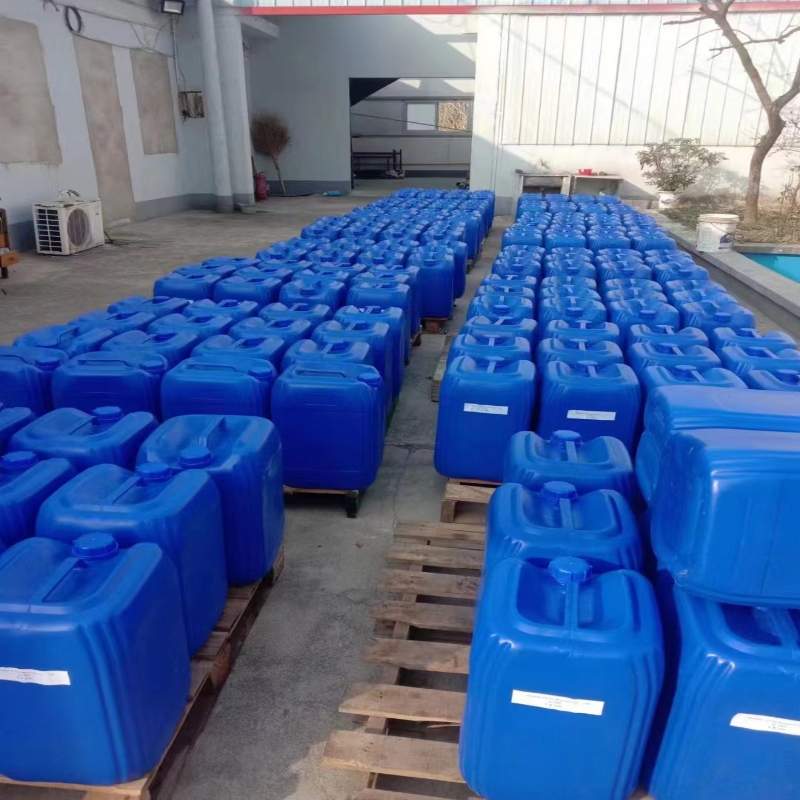-
Categories
-
Pharmaceutical Intermediates
-
Active Pharmaceutical Ingredients
-
Food Additives
- Industrial Coatings
- Agrochemicals
- Dyes and Pigments
- Surfactant
- Flavors and Fragrances
- Chemical Reagents
- Catalyst and Auxiliary
- Natural Products
- Inorganic Chemistry
-
Organic Chemistry
-
Biochemical Engineering
- Analytical Chemistry
-
Cosmetic Ingredient
- Water Treatment Chemical
-
Pharmaceutical Intermediates
Promotion
ECHEMI Mall
Wholesale
Weekly Price
Exhibition
News
-
Trade Service
The inflationary shock caused by rising energy and food prices and supply chain bottlenecks continues, and central banks around the world have generally entered a tightening cycle
.
For economies still recovering, the shift in monetary policy is creating potential recession risks, which in turn has exacerbated the volatility
of risky assets since the second quarter.
Steen Jacobsen, chief economist of Saxo Bank, was interviewed by First Financial Reporter a few days ago, he believes that the global economy is slowing down, but recession fears are priced a little too much, commodities are beginning to have fundamental value, and the risk of European energy crisis cannot be ignored
.
It will take time for inflation to cool down
Reporter: Do you expect a global recession in the next 12 months?
Jacobson: No, I don't expect a global recession at the moment, but energy, food prices, and supply chain issues will continue to push up inflation and interest rates, and we could see a big economic slowdown
.
The risk is that inflationary effects require central banks to tighten even more than they or markets expect, which is also a risky bet that demand is undermined
to some degree.
But the risk of policy is that interest rates do not address imbalances in the economy
.
The global recession means unemployment will be much higher than the current low levels in Europe and the United States, and there are no signs
of that yet.
And, I see China's strong infrastructure investment plan
.
Reporter: What will the Fed do this month, do you think it is necessary to raise interest rates above neutral?
Jacobson: The consensus now is that the probability of a 75 basis point rate hike has decreased
.
There is no doubt that the Fed's two responsibilities mean that interest rates
need to continue to be raised sharply.
A CPI approaching 10% is the worst thing facing the U.
S.
economy, and historically low unemployment means that the impact of lower inflation is greater
, both in terms of the magnitude of interest rate hikes and the time horizon.
Reporter: In Saxo's quarterly outlook, you mentioned that inflation is an out-of-control train that is difficult to ease in the short term.
Jacobson: What we're saying is that "the overall level of prices is still rising," but it's hard to predict the peak
.
To be honest, we are very worried about this winter, because most energy forward prices and freight rates indicate that heating and generating electricity in winter are very expensive
.
The world's major central banks have been telling markets that they want to see inflation return to 2% by the end of 2023, and markets are pricing
in inflation to start pulling down significantly later this year or early next year.
However, what we see is that next year, the inflation rate in the United States and Europe will still be 4%~5% and 3%~4%
respectively.
Therefore, until all this is over, the market may need to constantly adjust its forecasts
for inflation and interest rates.
Portfolio recommendations
Reporter: In the past six months, the stock market sentiment has changed
dramatically.
At the same time, the earnings outlook for global companies in the third quarter is not optimistic, would you advise investors to reduce their holdings of stocks?
Jacobson: Investing is a long game
.
I recommend reducing some of the risk appetite first, as the Fed plays the biggest role
in monetary policy.
Portfolio diversification is a good strategy
in the current market environment.
On the sector, it can overweight the weight
of commodities, energy, cybersecurity and defense industry.
We need to retain some exposure and then rebalance it monthly to reflect market risk and the impact of
significant events.
Overall, portfolio exposure has decreased by 15%~20%
this year compared to the benchmark.
Reporter: What advice do you have for investors to invest in the third quarter?
Jacobson: We're long commodities and the dollar
.
Right now the market is pricing in a recession too deeply, so for us, commodities are showing fundamental value
.
At the same time, investors can balance some of the market risk
borne by long stocks by building defensive positions in gold, volatility VIX and floating rate notes.
The shadow of the energy crisis is not far away
Reporter: Energy prices are the main driver of
global inflation.
OPEC+ has now released almost all of its reserves, while the Western coalition continues to impose sanctions on Russia, what are your expectations for crude oil prices in the third quarter, and will the oil price cap plan for Russia work?
Jacobson: I expect that the high point of international oil prices in the third quarter will be $110~120
.
In fact, the design and execution of the price cap scheme was terrible
.
The key to solving oil prices should focus on getting more supply, not restricting free markets
.
Reporter: The outside world is paying attention to the prospect of resuming production of Nord Stream 1, do you think Europe will face another energy crisis this year?
Jacobson: Since the fall of 2021, the shadow of the energy crisis has not gone
away.
Now, almost a year later, many countries have begun to ban Russian fossil energy imports, and as Russia's energy exports continue to decline, and Europe still struggles to find enough alternative supplies, the biggest energy crisis since the 80s seems to be brewing
.







